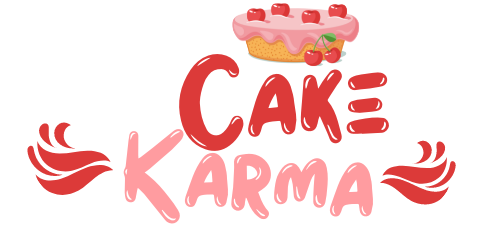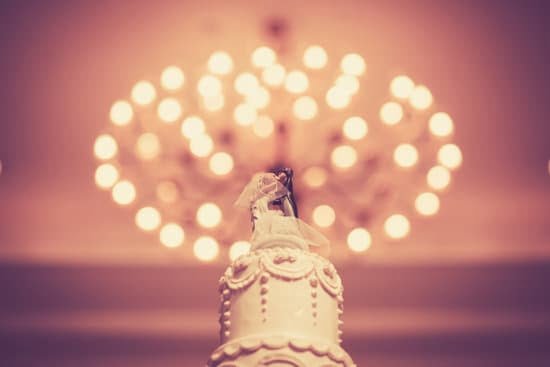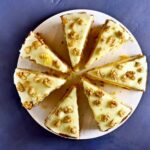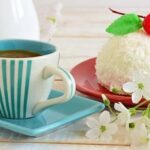Are you looking to learn how to cake decorating for beginners? Whether you’re a baking enthusiast or looking to explore a new hobby, cake decorating can be a fun and rewarding skill to master.
In this article, we’ll provide you with an introduction to the world of cake decorating, essential tools and equipment needed, basic techniques, choosing the right cake base and frosting, a step-by-step guide to decorating a simple cake, tips and tricks for perfecting your skills, common mistakes to avoid, as well as inspiration and resources for beginner cake decorators.
Cake decorating is an art form that allows individuals to express their creativity through beautifully decorated cakes. If you’re new to cake decorating, it’s important to familiarize yourself with the essential tools and equipment needed to get started. From piping bags and tips to offset spatulas and turntables, having the right tools will make the process much easier and enjoyable.
Once you have your tools in hand, mastering basic techniques such as smoothing buttercream, creating rosettes and swirls with piping bags, and working with fondant will set the foundation for your cake decorating journey. Choosing the right cake base and frosting is also crucial in achieving the desired flavor and texture for your creations. With these fundamentals in mind, you’ll be well-equipped to dive into the world of cake decorating for beginners.
Essential Tools and Equipment for Cake Decorating
When it comes to cake decorating, having the right tools and equipment can make all the difference in creating a beautifully decorated cake. As a beginner, it may be overwhelming to know where to start when it comes to gathering supplies, but with a few essential items, you can begin your cake decorating journey with confidence.
Essential Tools
One of the most important tools for cake decorating is a set of piping tips and bags. These will allow you to create different designs and textures on your cakes, such as rosettes, borders, and writing. Other essential tools include an offset spatula for smoothing frosting, a turntable for easy cake rotation while decorating, and a bench scraper for achieving clean edges on your cakes.
Essential Equipment
In addition to tools, there are also several equipment items that are essential for cake decorating. A good quality stand mixer or hand mixer is crucial for making smooth and creamy frosting. You will also need cake pans in various sizes, a cooling rack for cooling baked cakes, and a leveler for trimming cakes to ensure they are even and flat.
Additional Supplies
Some additional supplies that may come in handy for beginners in cake decorating include parchment paper for creating stencils or protecting surfaces while working, food coloring gels or powders for customizing frosting colors, and edible decorations such as sprinkles or edible glitter.
By equipping yourself with these essential tools and equipment for cake decorating, you will be well-prepared to start experimenting with basic techniques and designs. As you continue on your cake decorating journey as a beginner, you may find that adding more specialized tools or equipment to your collection can further enhance your skills and creativity.
Basic Techniques for Cake Decorating
Cake decorating can seem intimidating for beginners, but with the right techniques and practice, it can be a fun and rewarding experience. One of the basic techniques in cake decorating is icing consistency. Different consistencies are used for various decorating techniques, so learning how to achieve the right consistency is crucial. For example, a stiff consistency is perfect for piping flowers and intricate designs, while a thin consistency is ideal for creating smooth finishes on cakes.
Another important technique for beginners to learn is piping. Piping involves using a pastry bag and different tips to create various designs on cakes and cupcakes. There are different piping techniques such as rosettes, shells, and stars which beginners can start practicing with. It’s essential to start with simple designs and gradually move on to more complex ones as skills improve.
Additionally, understanding color theory is essential in cake decorating. Beginners should learn how to mix food coloring to achieve their desired shades and tones. Knowing how colors complement each other will help in creating visually appealing designs on cakes. By mastering these basic techniques, beginners can lay a solid foundation for their cake decorating skills.
Learning how to cake decorating for beginners requires patience and practice. With dedication to honing these basic techniques, even novice decorators can create stunning cakes that will impress friends and family alike.
Choosing the Right Cake Base and Frosting
When it comes to cake decorating, one of the most important decisions you will make is choosing the right cake base and frosting. The type of cake and frosting you use can greatly impact the outcome of your decoration, so it’s essential to choose wisely. Here are some tips for selecting the perfect cake base and frosting for your decorating endeavors:
- Choose a sturdy cake base: When it comes to decorating, a sturdy cake base is key. Avoid light and airy cakes that may not be able to support the weight of your decorations. Instead, opt for denser cakes like pound cake or butter cake.
- Consider the flavor: The flavor of your cake should complement the flavors of your frosting and any fillings you plan to use. For example, if you’re using a rich chocolate frosting, a moist chocolate cake would be a great match.
- Selecting the right frosting: Different frostings have different textures and consistencies, so it’s important to choose one that will work well with your decorating techniques. Buttercream is a versatile choice that can be easily colored and piped, while fondant provides a smooth canvas for elaborate designs.
In addition to considering the type of cake base and frosting you’ll use, it’s also important to think about any additional fillings or layers that may impact your cake’s stability and flavor profile. Taking the time to carefully select your cake base and frosting will set you up for success as you begin your journey into the world of cake decorating.
Step-by-Step Guide to Decorating a Simple Cake
Decorating a simple cake can be an enjoyable and rewarding experience, especially for beginners who are just starting out in the world of cake decorating. Whether you’re looking to create a beautiful birthday cake or a stunning dessert for a special occasion, learning the basics of cake decoration is essential. In this section, we will provide you with a step-by-step guide on how to decorate a simple cake, from preparing the frosting to adding the finishing touches.
First, it’s crucial to have the right tools and equipment for cake decorating. This includes an offset spatula for spreading the frosting, piping bags and tips for creating intricate designs, and a turntable for easy access to all sides of the cake. Once you have gathered your supplies, it’s time to choose the right cake base and frosting. A classic vanilla sponge cake paired with buttercream frosting is always a safe bet for beginners.
Next, apply a crumb coat of frosting to the cake, which acts as a base layer to seal in any loose crumbs. Then, add more frosting as needed and use the offset spatula to smooth it out evenly across the top and sides of the cake. If you want to add decorative elements such as rosettes or borders, fill your piping bag with frosting and practice on a separate surface before applying it to your cake.
Finally, don’t forget about the finishing touches. Whether it’s adding sprinkles, edible flowers, or chocolate shavings, these small details can take your simple cake from ordinary to extraordinary. Remember that practice makes perfect when it comes to cake decorating, so don’t be discouraged if your first attempt doesn’t turn out exactly as planned.
| Tools | Equipment |
|---|---|
| Offset spatula | Piping bags |
| Piping tips t | Turntable |
| Bench scraper | Cake leveler |
Tips and Tricks for Perfecting Your Cake Decorating Skills
Once you have mastered the basic techniques for cake decorating, it’s time to take your skills to the next level with some tips and tricks. These can help you create professional-looking cakes and boost your confidence in your abilities.
One important tip is to practice patience when working on intricate designs or delicate decorations. Take your time and don’t rush the process. Precision and attention to detail are key in cake decorating, so be sure to allocate enough time for each step of the process.
Another helpful trick is to invest in good quality tools and ingredients. The right equipment, such as piping bags, tips, and turntables, can make a big difference in the outcome of your decorated cakes. Similarly, using high-quality ingredients for your cake bases and frostings can elevate the overall taste and appearance of your creations.
Finally, don’t be afraid to experiment with new techniques and designs. Whether it’s trying out different piping styles or experimenting with fondant decorations, stepping out of your comfort zone can lead to exciting discoveries in cake decorating.
| Tips and Tricks | Details |
|---|---|
| Practice Patience | Take your time when working on intricate designs. |
| Invest in Quality Tools | Good tools can make a big difference in the outcome. |
| Experiment with New Techniques | Don’t be afraid to try out different styles and designs. |
Common Mistakes to Avoid in Cake Decorating
When first starting out in the world of cake decorating, it’s common to make a few mistakes along the way. However, by learning about these common mishaps and how to avoid them, beginners can save themselves time and frustration as they perfect their skills. Here are some of the most common mistakes to watch out for:
Not Allowing Enough Time for Cake Preparation
One of the most important parts of successful cake decorating is making sure that you allow enough time for each step of the process. This includes properly preparing your cake layers, allowing them to cool completely before frosting, and giving enough time for decorations to set. Rushing through these steps can lead to a less-than-ideal finished product.
Using the Wrong Consistency of Frosting
Another common mistake made by beginner decorators is not paying attention to the consistency of their frosting. Different techniques require different consistencies, so it’s important to know when a stiffer frosting is needed for piping and when a thinner consistency is better for smooth spreading.
Over-Decorating or Over-Complicating Designs
While it can be tempting to want to show off your skills with intricate designs and elaborate decorations, beginners should be cautious of over-decorating their cakes. Simple designs executed well often have a more elegant and polished look than overly complicated ones.
By being mindful of these common mistakes and taking steps to avoid them, beginners in cake decorating can set themselves up for success as they begin honing their skills in this creative craft.
Inspiration and Resources for Beginner Cake Decorators
So you’ve got the basics down and now you’re ready to take your cake decorating skills to the next level. As a beginner, it can be incredibly helpful to seek out inspiration and resources that will help you improve and expand your abilities. Here are some valuable sources of inspiration and helpful resources for beginner cake decorators:
- Online Tutorials: There are countless websites and YouTube channels dedicated to providing step-by-step tutorials for cake decorating. From basic techniques to advanced designs, these tutorials can be incredibly useful for beginners looking to improve their skills.
- Cake Decorating Books: Investing in a good cake decorating book can provide you with a wealth of knowledge and inspiration. Look for books that cover a wide range of techniques, tips, and designs to help you expand your repertoire.
- Cake Decorating Classes: Many craft stores, culinary schools, and community centers offer classes specifically geared towards beginners. These classes often provide hands-on instruction and guidance from experienced decorators, allowing you to learn new techniques in a supportive environment.
In addition to seeking out specific resources for cake decorating, finding inspiration from other sources can also be beneficial. Pay attention to the details on the cakes at weddings, birthdays, or other events you attend. Take note of colors, textures, patterns, and decorations that catch your eye – even outside of the realm of baking.
Remember that inspiration is all around us; from nature’s beauty to architecture’s grandeur – anything vibrant could spark creativity in your own cake decorating projects. With determination and continued practice using various sources of inspiration will lead beginner cake decorators toward continuous growth I’m turning unique creations into edible masterpieces.
Conclusion
In conclusion, learning how to cake decorating for beginners can be a fun and rewarding experience. With the right tools, basic techniques, and guidance, anyone can create beautiful and delicious cakes. While it may seem overwhelming at first, with practice and patience, beginner cake decorators can develop their skills and create stunning edible works of art.
One of the joys of cake decorating for beginners is the sense of fulfillment that comes from seeing a finished cake that they have created themselves. Whether it’s a simple design or a more intricate one, the satisfaction of turning a plain cake into something visually appealing is truly gratifying. Additionally, the process of decorating a cake allows beginners to unleash their creativity and express themselves through food art.
For those just starting out in cake decorating, it’s important to remember that mistakes are part of the learning process. Rather than getting discouraged by errors or imperfections, beginners should use them as opportunities to improve and fine-tune their skills. There are countless resources available, including online tutorials, books, and workshops, that can provide inspiration and guidance for those looking to enhance their cake decorating abilities.
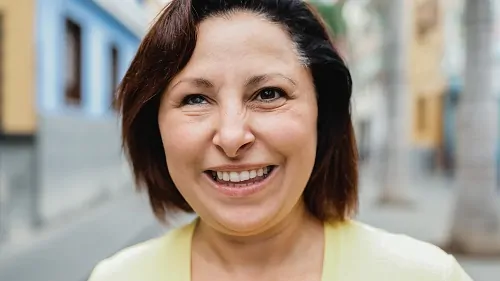
Welcome to our cake decorating blog! My name is Destiny Flores, and I am the proud owner of a cake decorating business named Cake Karma. Our mission is to provide delicious, beautiful cakes for all occasions. We specialize in creating custom cakes that are tailored specifically to each customer’s individual needs and tastes.
